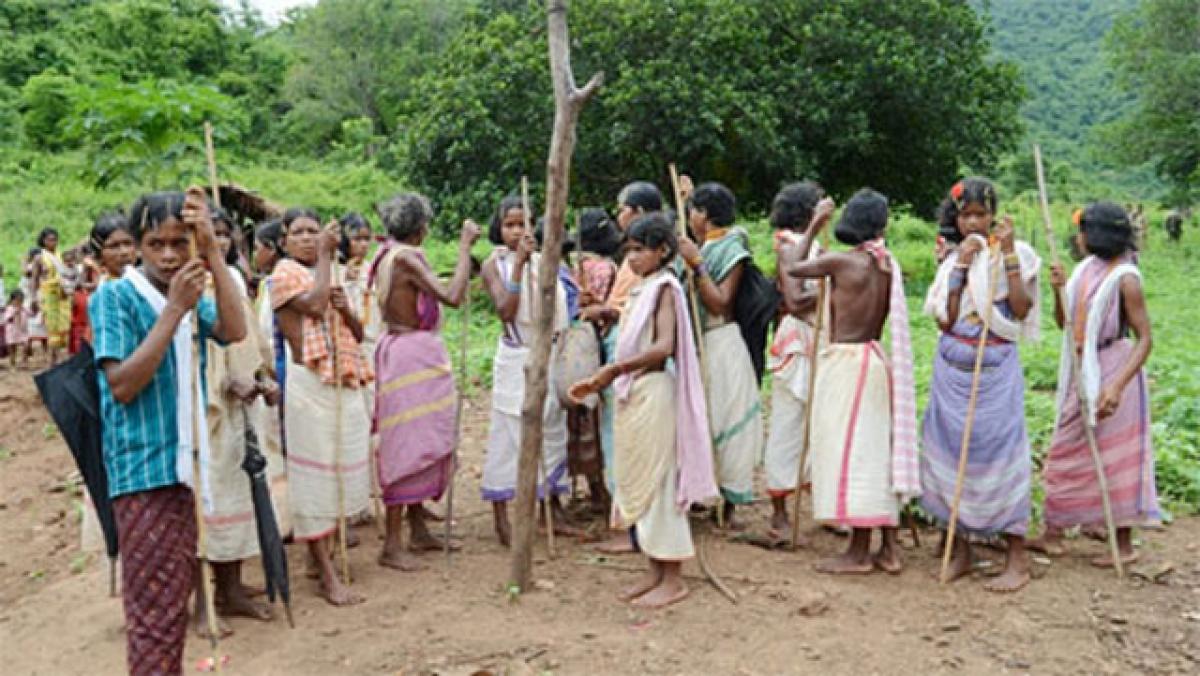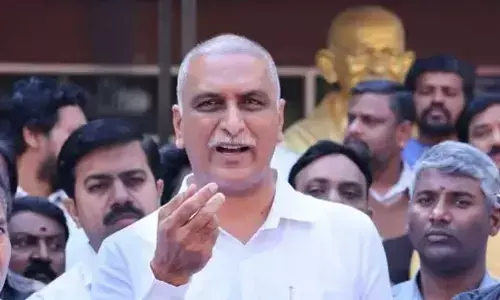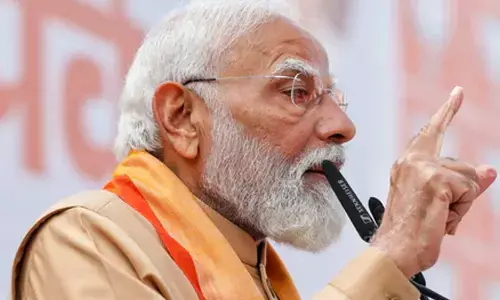Self-autonomy eludes tribals

The enactment of the PESA Act 1996 by the Parliament is an important watershed in the history of tribal affairs and autonomy of Gram Sabha for the local self-governance in Fifth Scheduled Areas of the country.
Breaking two decades silence on the implementation of the Panchayats Extension to Scheduled Area (PESA) Act 1996 in the Scheduled Areas of Andhra Pradesh, the Tribal Welfare Department issued operational guidelines fixing the responsibility of several department functionaries to recognise the role of Gram Sabha in the local administration, thanks to R P Sisodia, Principal Secretary, and Dr M Padma, Special Commissioner of Tribal Welfare, who have played a leading role in issuing the guidelines to all the line departments in the State.
The enactment of the PESA Act 1996 by the Parliament is an important watershed in the history of tribal affairs and autonomy of Gram Sabha for the local self-governance in Fifth Scheduled Areas of the country. The Government of Andhra Pradesh also brought State legislation in 1998 as directed by the Central enactment extending the special provisions for the local governance in the Scheduled Areas of AP.
The State PESA Act became operational through notifying the PESA Rules in 2011 governing the role of Gram Sabha in the local governance. Further, in 2013 the government notified the villages for the purposes of constituting Gram Sabhas in the Scheduled Areas and enabling them to function as a self-government unit within the framework of PESA Act for effective governance. However, the Act was neglected in the local administration by all departments consistently during past two decades.
The Gram Sabha (GS) is the nucleus for all development activities. It is endowed with specific powers and functions under PESA Act which include management of community resources, minor water bodies, and ownership over minor forest produce. Gram Sabha is also an approval authority for socio, economic development plans and programmes, and is responsible for identification and selection of beneficiaries under various poverty alleviation programs.
The PESA Act further mandates the implementing agencies to seek funds utilisation certificate from Gram Sabha for the works executed in the village as part of the social audit. Gram Sabha is also endowed with certain quasi-judicial and regulatory powers including customary mode of dispute resolutions, safeguarding and preserving traditions, customs, control over money lending, local institutions, and functionaries and regulate the use of intoxicants, and prevent tribal land alienation and restoration of alienated land etc. Unfortunately, the constitutional role of Gram Sabhas is undermined by the executive officials in the agency areas.
Convergence
The role and potential of Gram Sabhas would be realised if a symbiosis is worked out between the existing parallel functional committees like Janmabhumi Committees, Watershed Committees, Village Tribal Development Agency, Vana Samrakshana Samithis (VSSs), Village Organisations (VOs), etc constituted by various departments for implementation of their programmes.
In fact, the role of all these functional committees ought to be integrated with the key role of constitutionally empowered Gram Sabha under the PESA legislation. No doubt, the functional committees can play the role of a technical or facilitative or Standing Committee by placing its proposals or community needs for the decision of Gram Sabha. This arrangement will allow both the Gram Sabha and functional committees to work in tandem and reinforce each other’s role.
Model GPs
The Integrated Tribal Development Agencies (ITDAs) of Srikakulam, Vizianagaram, Visakhapatnam and East Godavari Districts have planned to develop Model Gram Panchayats (GPs) in every agency mandal to showcase them as a learning model for other GPs. The key to success for developing these model GPs will depend on the due recognition of role and importance of Gram Sabhas by the development authorities.
Presently, the space for development administration through the Gram Sabha is negated in the agency areas and all the activities of the departments are routed through its functional committees. Violation of Gram Sabha is continued because the stakeholders of Gram Sabha and other Panchayat Raj Institutions have failed to assert their rights due to inadequate understanding of their constructive role in the empowerment of tribal communities.
Therefore, the present operational guidelines issued by the Tribal Welfare Department will allow both the functional committees and the Gram Sabhas to work in tandem and establish an effective local governance system of reinforcing each other’s work. Now it is imperative for other line departments including Agriculture and its accessory departments, Excise, Mining, Revenue, Girijan Co-Operative Corporation, Forest, Panchayat Raj and Rural Development, Minor Irrigation, Women and Child Welfare, Health, Marketing, etc to issue similar guidelines reinforcing their functionaries role in local administration without overriding or contradicting the role of Gram Sabhas.
The provisions of PESA Act and Rules in the local governance would surely ensure tribal self-autonomy in tribal areas. The implementation of PESA Act is a prescription to address several gaps in tribal development and also for empowerment of disempowered tribal communities. It is only possible through these measures for the state government to bring about a radical qualitative change in the operational efficiency of the Gram Sabhas.
By Dr Palla Trinadha Rao















